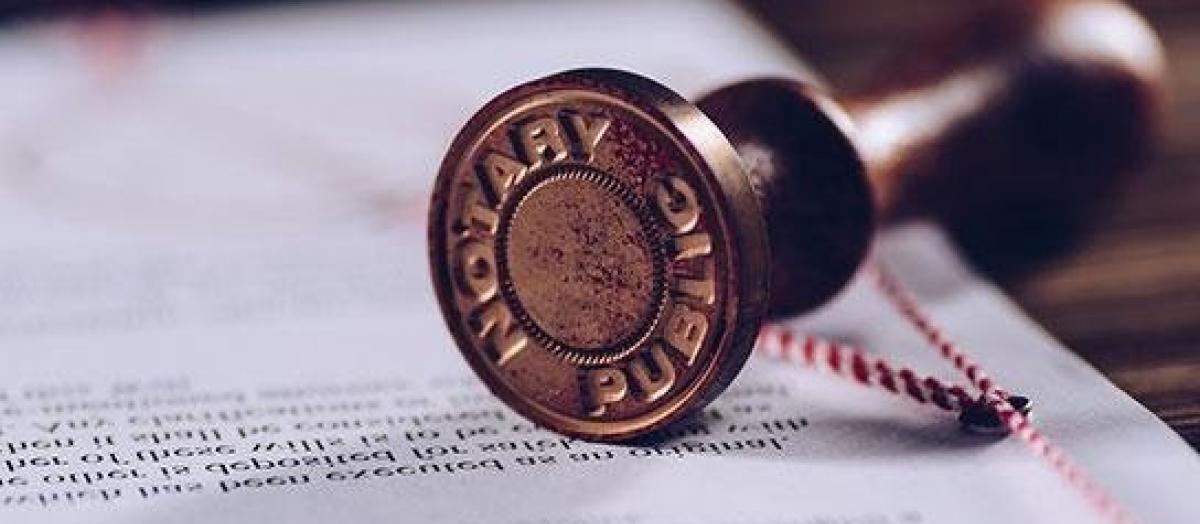Debunking Notarial Work: Streamlining the Function and Importance of Notaries
In the detailed internet of lawful documents and confirmation, notaries stand as pillars of guarantee and credibility. Their duty, often shrouded in mystery for numerous, brings substantial weight in guaranteeing the validity and honesty of essential papers. As guardians of legality and reality, notaries play a crucial part in our society, yet their job is not always completely comprehended. By deciphering the complexities bordering notarial practices and dropping light on the value of their acts, a more clear understanding emerges of the important duty notaries play in supporting the material of legal and contractual arrangements.
The History of Notarial Work
The history of notarial work dates back to ancient civilizations, where scribes played an important function in recording crucial details and authenticating files. This led to the growth of notaries, people appointed by the state to act as objective witnesses in legal issues.
Throughout the Center Ages, notaries got prestige in Europe, with their functions increasing to consist of preparing legal files, certifying trademarks, and protecting documents. The increase of worldwide profession even more emphasized the relevance of notarial operate in verifying agreements and arrangements across boundaries.
In the contemporary age, notaries remain to play an essential function in legal and company deals by confirming identities, confirming the credibility of documents, and stopping fraud. Their duty in accrediting the validity of contracts includes a layer of safety and depend the ever-evolving landscape of commerce and regulation.

Obligations and Responsibilities of Notaries
The historical evolution of notarial job from old civilizations to the contemporary age has actually formed the unique tasks and duties that notaries support in lawful and organization deals today. Notaries play a crucial role in verifying the credibility of records and the identification of signatories. One of their primary duties is to witness the signing of crucial records, such as agreements, wills, and acts, to make sure that all events are becoming part of arrangements knowingly and voluntarily. Notaries likewise validate that notaries are of sound mind and not under duress or browbeating.
In addition, notaries are entrusted with administering vows and affirmations, which are crucial in legal proceedings and the execution of testimonies. They certify duplicates of original documents, supplying guarantee to organizations that the duplicates are true replicas of the originals. Notaries have to keep exact documents of all purchases they look after to make certain transparency and responsibility. In general, the obligations and obligations of notaries are necessary in protecting the integrity and legitimacy of different papers and transactions.
Notarial Certificates and Signatures
Exhibiting precise focus to detail, notarial certifications and signatures offer as vital components in validating the authenticity of lawful papers. Notarial certificates typically contain essential information such as the day of notarization, the names of the notaries, a summary of the document, and the notary's main seal. These certificates give a clear document of the notarial act, ensuring that the file can be conveniently identified and traced back to the notary that looked after the process.
Trademarks play a crucial function in notarial job, as they symbolize the arrangement and permission of the celebrations entailed. Notaries very carefully witness the signing of files to verify the identification of the notaries and validate that they are signing of their very own free choice. By fastening their main seal and trademark to the document, notaries license that the required procedures have actually been followed and that the paper is legitimate and enforceable.
In essence, notarial certificates and signatures are the trademark of authenticity in lawful purchases, offering assurance to all events entailed that the records are legit and binding.
Significance of Notarial Acts

Registration Process Described
The notarization process normally begins with the private providing the document to a notary public. Once the identification is validated, the notary makes certain that the specific authorizing the file does so voluntarily and without any browbeating.

Final Thought
Notarial certificates usually include critical info such as the day of notarization, the names of the signatories, a description of the record, and the notary's main seal. These certifications offer a clear record of the notarial act, ensuring that the record can be conveniently identified and mapped back to the notary that oversaw the procedure.
By affixing their main seal and trademark to the record, notaries license that the required procedures have been followed and that the paper is valid and my company enforceable.
By validating the identity of the signatories, verifying their determination to enter into the agreement, and certifying the day and area of the finalizing, notaries play a vital function in upholding the legitimacy of legal files.After the paper is signed, the notary will certainly affix their main seal or stamp onto the file.